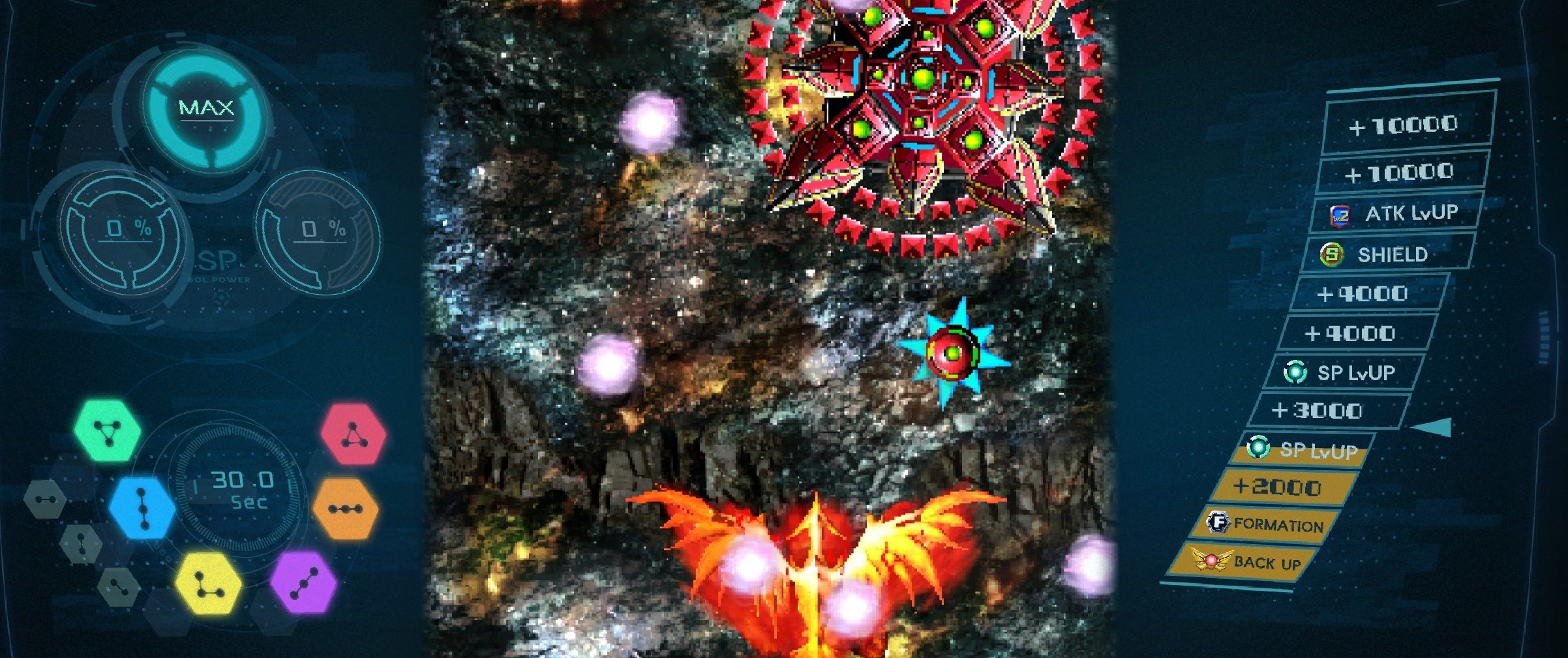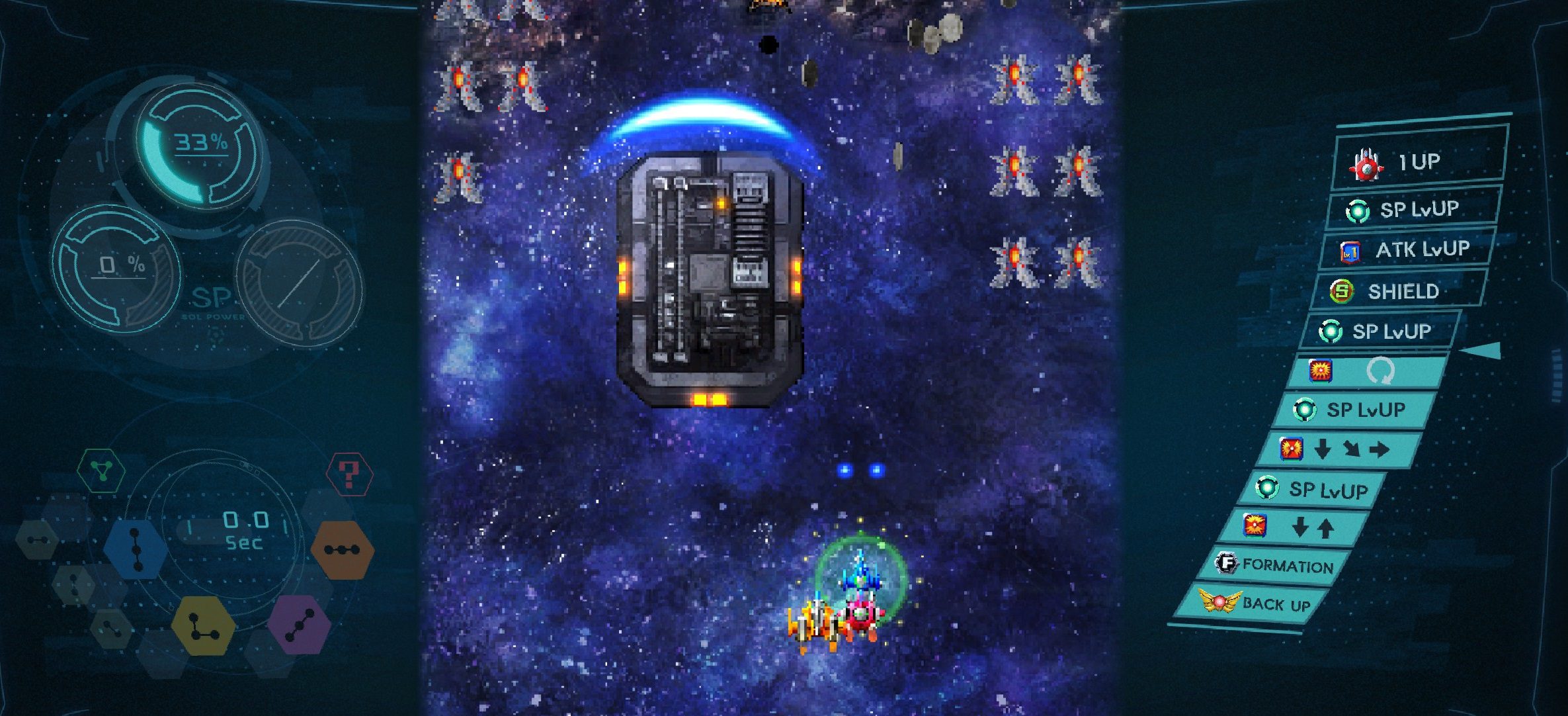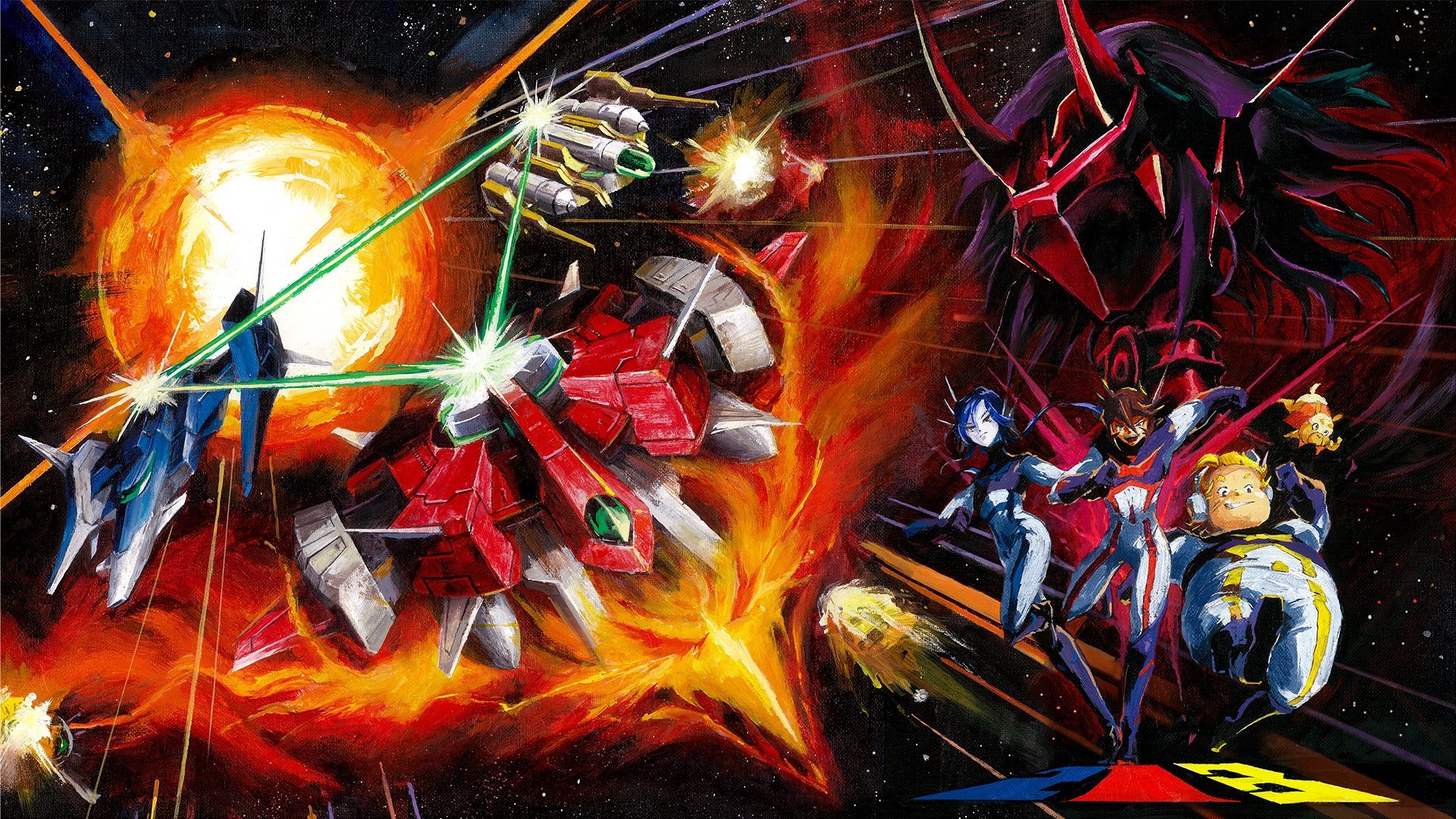Out of the ashes of my youth
We’re now in the era where April Fools jokes can become real. And I’m into it. Especially when it’s a game from Platinum, most definitely when it’s Sol Cresta.

Sol Cresta (PC [reviewed], PS4, Switch)
Developer: Platinum Games
Publisher: Platinum Games / Hamster
Released: February 22, 2022
MSRP: $39.99 (base game) / $9.99 (dramatic DLC)
In case you missed this niche celebration: Platinum Games, with Hamster, brought back the old school Cresta shoot ’em up (shmup) series on modern platforms with a new true sequel. You’re looking at arcade mode (and dramatic mode via DLC, which I’ll get to later), with seven stages by default. Those stages are broken up by multiple subsections, which last up to five minutes each. Many of these portions do involve giant enemies, but a “rival” Proto Man-esque figure (with docking abilities) pops up from time to time to ground the big boss encounters. It gets even more creative from there as you move from stage to stage.
I played it on PC, which is my favorite home for shmups because of TATE-enabled monitors: which Sol Cresta supports. Advanced options are semi-slim, but sufficient for most shmup enthusiasts. There’s a toggle for scan lines, rotation (right or left 90 degrees) for TATE mode, windowed/full-screen, extra life/extend score (how many points you need to get an extra life) toggles, full controller remapping, and controller support.
Passive polish is really the key ingredient to Sol Cresta. While it’s not doing a whole lot that you haven’t seen before, Platinum Games managed to craft Sol Cresta in such a way that it looks and sounds like an above-average genre effort. While regular and charged shots are the core of what you’re going to be doing with your ship, the “splitting and docking” mechanic (taken from the franchise’s humble beginnings in 1980) is Sol Cresta‘s bread and butter.
You can press a button to separate from your ship, and redock in different configurations. The gimmick is that different formations can trigger different playstyles and ultimate attacks, allowing some form of experimentation. In short, it’s your “bomb,” with a little more work. It takes some getting used to, especially with the various gauges and displays, but most people will pick it up after a level or two.
Platinum also adds a little extra flair on top with commands (think like a fighting game), where you can fire backward, to the side, or burst in a 360-degree fashion. It’s just enough to warrant a little extra nuance when playing without being too overwhelming, or stuffing so much in that everything suffers because something is under-designed. Having to pick up formation-enabling chips (which can be shot to change the type) and fly through color-coded hoops/shoot color-coded boxes that provide bonuses if a certain ship is the lead adds another level of chaos into the mix and rewards precision. It’s the sort of thing score-attack fiends will want to keep an eye on in repeat playthroughs.
Sol Cresta just has a fantastic flow to it, especially on higher difficulties; there are five in total in arcade mode. It’s a blast to flip into a formation to answer something you need to do at that given moment, then slip back into your standard ship instantly — say, to dodge something on a dime. Acquiring the command abilities and bonuses gradually in a stage as you score points is slick, as it lets you build up and unload as the stage crescendos. The docking goes both ways, as it’s thrilling once you’re stripped down to just one small ship with a desperation dodge; trying to build back up again. The visual style is very clear so you know what’s going on at all times, as is the sound feedback and stellar soundtrack.

If you’re so inclined you can spring for the $10 “Dramatic DLC,” which we were provided in addition to the base game, and spans two difficulty modes (easy/normal). “Dramatic” is basically short for “drama,” as there’s an actual story here, told via text [with character portraits] on the sides of the screen, and Japanese voiced audio (a la Star Fox). It boasts the “true identity” of an enemy in the story and several plot revelations, as well as a “true ending.” What is this, a Capcom game from the 2010s?! In all seriousness, a $10 true ending DLC isn’t a good look on paper. But I did have a lot of fun with it, and the base game feels complete on its own. You can decide if the juice is worth the squeeze — especially given the high price of the base game, which towers above most modern shmups.
Either way, Sol Cresta isn’t just a revival of a classic franchise, it’s a fully-fledged shmup that stands on its own two feet. It’s a bit of an ask price-wise, but the polish speaks for itself.
[This review is based on a retail build of the game provided by the publisher. The dramatic DLC was provided as well.]









